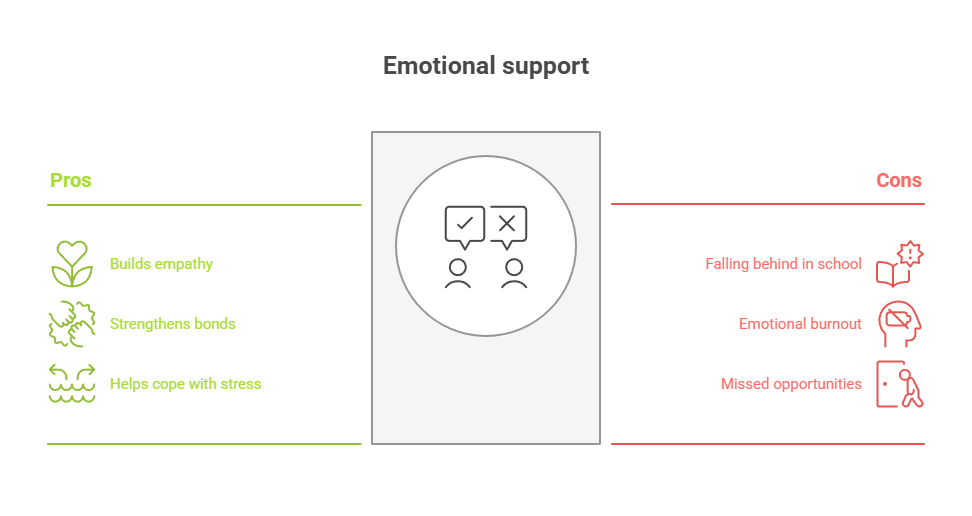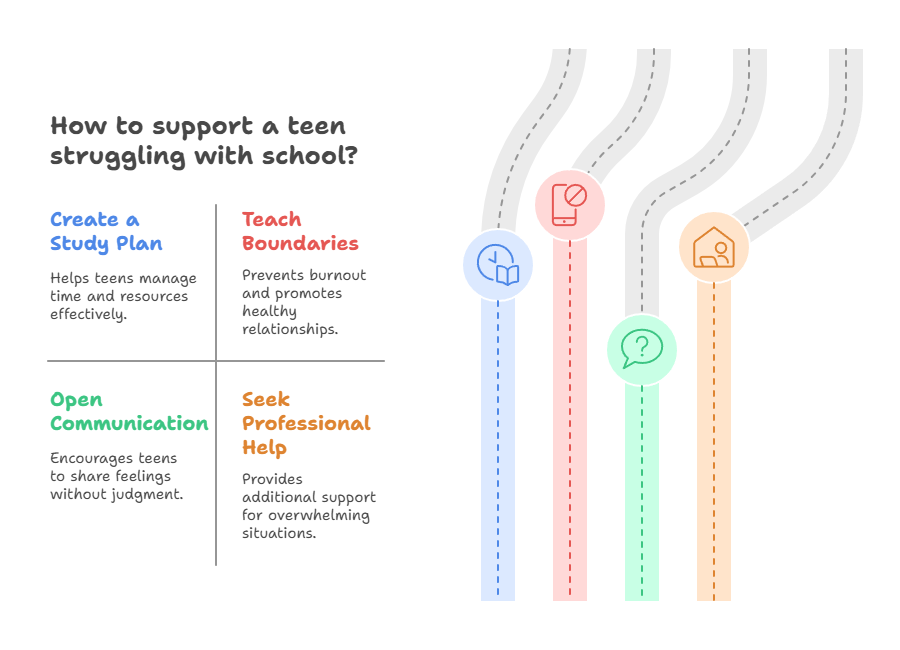The Delicate Balance Between Friendship and Responsibility
Adolescence is a rollercoaster of emotions, friendships, and academic pressures. Teens today juggle more than ever—homework, social lives, and sometimes even supporting friends through serious challenges like illness.
Take Molly, 14, whose best friend Tim is battling cancer. She spends hours comforting him, texting during class, and visiting him at the hospital. While her kindness is admirable, her grades are slipping, and her parents worry: How can she be there for Tim without sacrificing her own future?
This isn’t just Molly’s struggle—it’s a common dilemma for teens who want to help but don’t yet know how to set boundaries.
Why Emotional Support Matters (But Can Also Backfire)
Teen friendships are more than just fun—they’re emotional lifelines. When a friend is hurting, teens like Molly often feel a deep need to help.
The Upsides of Support:
✅ Builds empathy and resilience
✅ Strengthens social bonds
✅ Helps both friends cope with stress
But when support becomes all-consuming, it can lead to:
⚠️ Falling behind in school (math, languages, and sciences need consistent practice)
⚠️ Emotional burnout (constantly worrying about a friend is draining)
⚠️ Missed opportunities (colleges and scholarships look at grades)
The goal isn’t to stop teens from caring—it’s to help them care wisely.

4 Ways Parents Can Guide Their Teen Toward Balance
1. Create a Realistic Study Plan
Instead of saying “Stop helping Tim!”, help your teen structure their time.
✔ Set dedicated study hours (e.g., 4–6 PM = homework time)
✔ Use school resources (tutoring, study groups)
✔ Celebrate small wins (“You raised your math grade—let’s get ice cream!”)
2. Teach Healthy Boundaries
Support shouldn’t mean 24/7 availability. Help your teen:
✔ Limit texting during class (save conversations for breaks)
✔ Schedule visits smartly (weekends instead of school nights)
✔ Find other ways to show care (send encouraging notes, video calls)
3. Talk It Out—Without Lectures
Teens shut down if they feel judged. Try:
✔ Open-ended questions: “How do you feel about your grades lately?”
✔ Problem-solving together: “What’s one thing we could change to help?”
✔ Books as conversation starters (e.g., 14 Talks by Age 14)
4. Know When to Seek Help
If your teen is overwhelmed:
✔ Talk to a school counselor (they can help with stress and workload)
✔ Connect with the friend’s family (maybe Tim’s parents can reassure Molly)
✔ Consider therapy (if anxiety or sadness lingers)

The Bigger Lesson: Life Balance Is a Skill
This isn’t just about Molly and Tim—it’s about preparing teens for adulthood. Learning to:
🔹 Prioritize without guilt
🔹 Care for others without self-neglect
🔹 Manage time effectively
These skills will help them in college, careers, and future relationships.
Final Thought: They Can Do Both
Teens don’t have to choose between being a good friend and a good student. With guidance, structure, and empathy, they can support others without burning out.
Your turn: Has your teen faced a similar challenge? What worked? Share below! 👇








